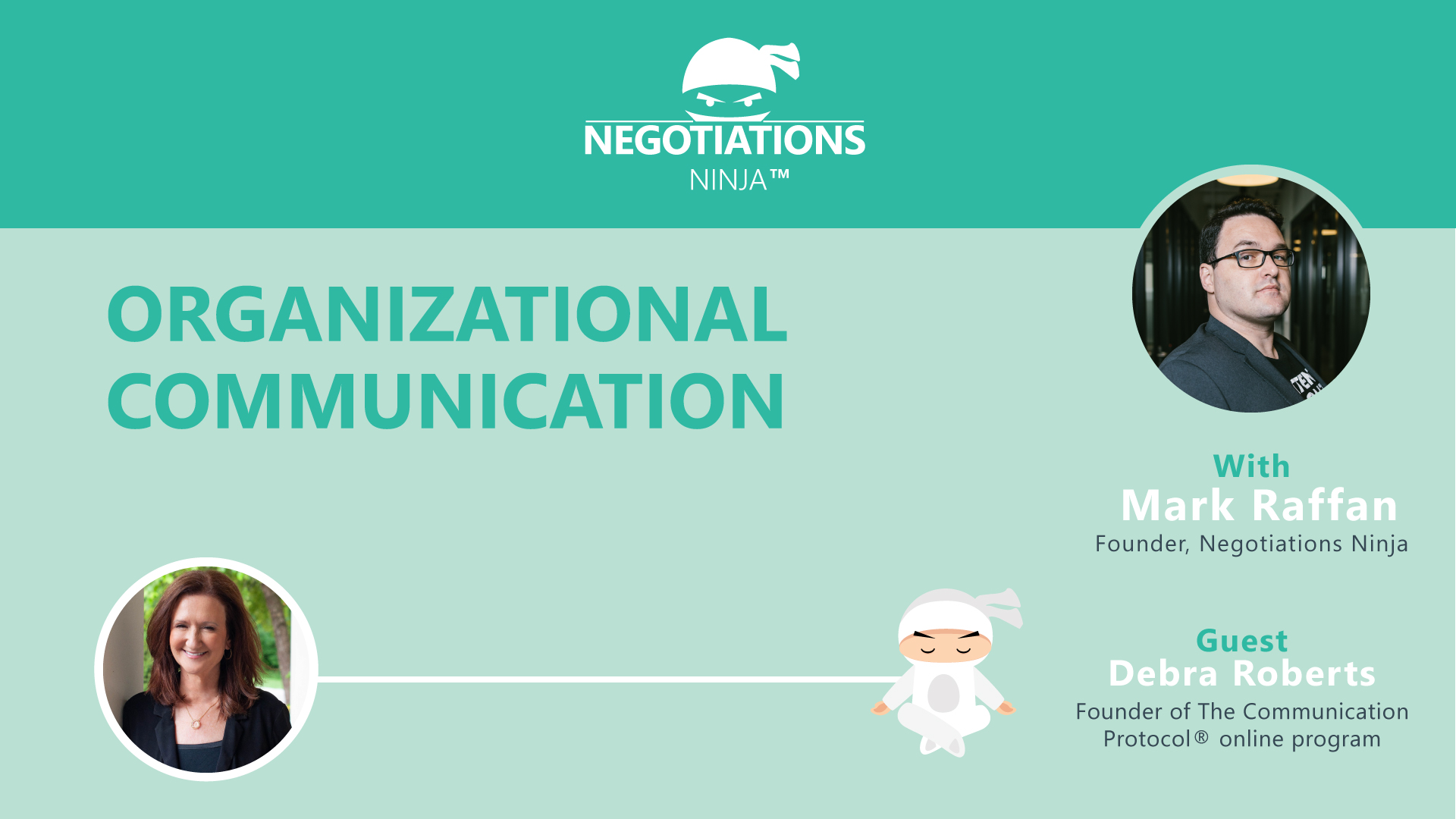What do you do if you feel like an employee isn’t listening to you? What do you do if they disagree with you? Conversation expert Debra Roberts believes that the impact of listening and creating trust through disagreements is key. Taking responsibility for your role as a leader is also imperative. So what should organizational communication look like? Learn more in this episode of Negotiations Ninja.
Outline of This Episode
- [2:03] Learn all about Debra Roberts
- [2:57] Communicating through disagreements
- [6:43] Take responsibility for your role as a leader
- [8:09] Shared belonging as an organization
- [10:57] How to communicate when nothing’s changed
- [12:13] Important conversations leaders need to have
- [15:59] Simple things that can be done to create trust
- [19:25] Navigate change by building relationships first
- [23:27] Learn about The Communication Protocol
Why won’t they listen to me?
We may feel like we’re communicating properly, but everyone has experienced times when we feel like someone just isn’t listening to what we’re saying. In your mind, you’re going, “Why won’t they listen to me?”
But you have to remember that a conversation requires communication between two people. So Debra emphasizes that when you’re frustrated, you need to stop talking and start listening.
Then ask questions like, “Help me understand what you think I’m saying?” or “What am I missing?” If they aren’t getting your point, you need to ask questions to clarify how to explain your point better. You also have to be open to a conversation and not just doling out demands.
Communicating through disagreements
But what if the conversation has developed into a disagreement, and it feels like it’s dragging on without resolution?
One of the key elements of Debra’s “Relationship Protocol” is that you need to turn toward someone. When someone is interested in what you’re saying, you feel heard. When they are annoyed or upset, the person is often turned away—physically or emotionally.
Why does someone feel the way they do? It might be a strong bias, opinion, or value system. But if they are truly turned away, you must accept that. Then you move into, “How do I work around this?” or “Do I want to disengage from this person?”
You have to know the cast of characters so you know how to respond. If you know that they’re turned away from you, it reminds you to take care of yourself in that situation.
Take responsibility for your role as a leader
You might meet someone and pre-judge them based on your first impression. But ultimately, you’re only responsible for yourself and how you come across. You aren’t responsible for someone else and their responses.
So how you speak to them lets them know you’re interested in what they have to say—even if you disagree with their opinion. You need to step back and do things in the best interest of your company, relationship, or family. You need to lean in, turn toward, and be a better listener.
But both people need to have the desire for a positive outcome. If only one person does, the conversation will always fall short. Always focus on your role in the interaction and what you can do differently to facilitate communication.
Resources & People Mentioned
Connect with Debra Roberts
- The Relationship Protocol Book
- The Relationship Protocol Website
- Connect on LinkedIn
- Follow on Instagram
Connect With Mark
- Follow Negotiations Ninja on Twitter: @NegotiationPod
- Connect with Mark on LinkedIn
- Follow Negotiations Ninja on LinkedIn
- Connect on Instagram: @NegotiationPod




